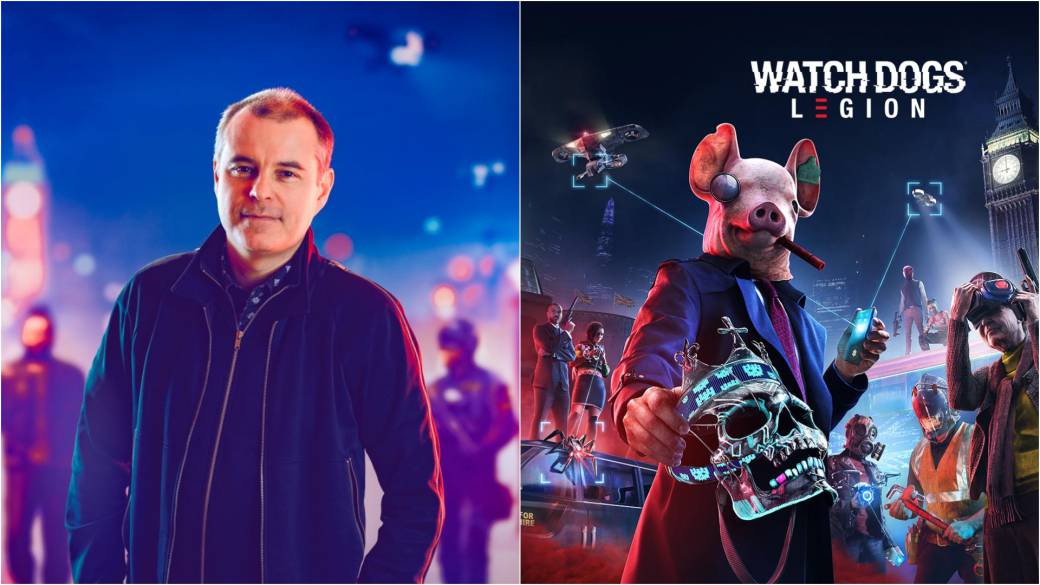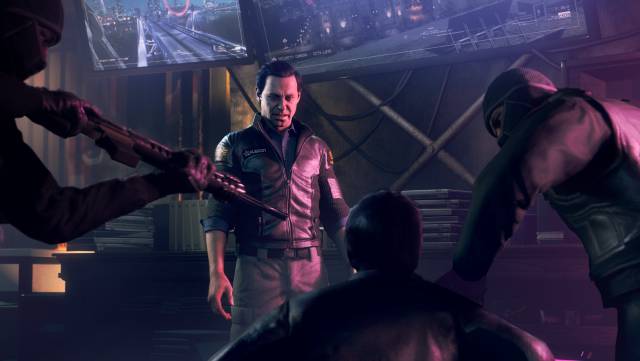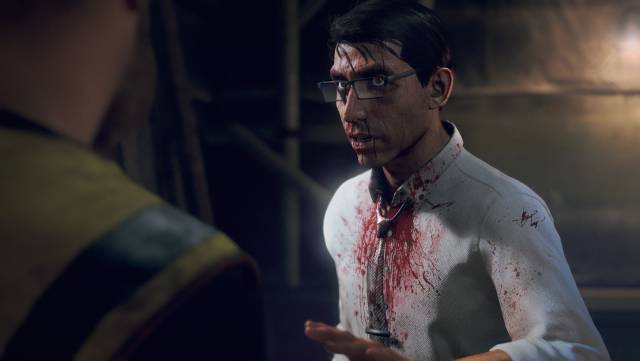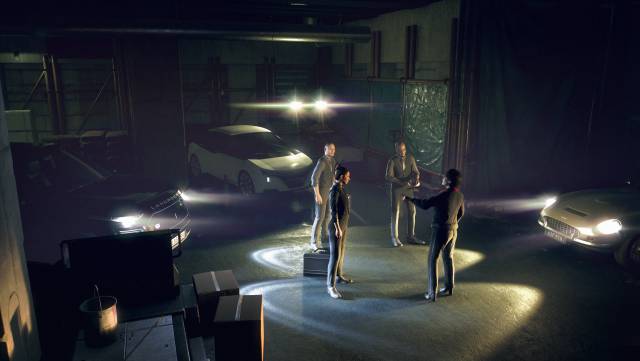
We interviewed Clint Hocking, director of Watch Dogs: Legion, about the state of the open world, the next generation and what is to come.
Watch Dogs: Legion is the result of rigorous work by Ubisoft Toronto to meet the standard that had been set from the beginning. Despite the ambition of being able to control anyone in this London in full swing, the team led by Clint Hocking has managed to bring it to fruition. In July we already told you about the relevance of mechanics in the formula, and the second session to which we had access confirms this again.
Clint Hocking has a long career in the video game industry. Before leading the third installment of this saga, he did the same with Far Cry 2. In FreeGameTips we sat down with him in a digital meeting to chat about the ins and outs of his development, the situation of the genre and what we can expect from several of the functions of the new generation.
FreeGameTips: It’s been 12 years since the release of Far Cry 2. In terms of design, how has the open world genre evolved since then?
Clint Hocking: [Se ríe] Good question. In my opinion, I think the worlds that have been open for a couple of decades since the release of Far Cry 2 have tended to be very narrative-centric and have somewhat shied away from creating much richer and more systematic interactions. One of the things we wanted to do from the beginning with Watch Dogs: Legion was to make the population more systematic and order of magnitude, in the same way that Far Cry 2 did with grass, trees and life. wild, which were systematic and interactive with the weather and everything around it; here we wanted to do the same with people.
That’s where the play-however-you-want mechanic comes from, from the original idea of the first Watch Dogs. When you see someone walking down the street, you can see his name and you see that he’s delivering pizza, but hey, at the same time he’s a secret drug dealer or something. You take that fragment, that little idea of who that person is, but making it real, creating that population, their friends, their family, where they live, where they work and what car they have, to make that enrich the simulation with which the player can to interact.
So, you know, over the last 10 years, in my opinion, open world games were trying to keep up with realization, characters, and narrative as a story-driven linear game. And I think it has been achieved. Now, my hope is that we can see those systems again and be able to make them much richer and more powerful in interaction.

The first Watch Dogs opened the generation, and with Watch Dogs: Legion it will close it. With the perspective of the three installments, how do you think the franchise has influenced the rest of the open world?
The original Watch Dogs was, you know, pretty systemic in interactivity. The idea of ctOS, that the city was your weapon, being able to interact with it and manipulate its infrastructures. Watch Dogs: Legion takes that and brings it to the next generation or near the end of the current one by saying that the city is not just a bunch of buildings, streetlights, road signs and cars. The city is the people. By increasing the level of fidelity in the interaction, it allows the game and the universe to be much more interactive.
My hope is that that kind of evolution throughout this generation is what the Watch Dogs brand represents. It is the idea of high simulation and the interaction of people in a world open to the reality of which it is. As we delve into the next generation and beyond, those influences are what we want to carry.
With the Play as Anyone mechanic, do you think the goal set since the beginning of the franchise has been met? That is, if the objective of the saga was always to achieve an original and ambitious idea like this one.
That is a good question. I don’t know if a goal will ever be met, I mean, really the goal has been to make every person in the world feel like a real person. It is one thing to achieve this in games like Far Cry 2, where there are so few people and most of the game takes place in a wild world, and another in a dense city, populated by millions of people. It is a completely different problem.
I think we’ve come a long way from the first Watch Dogs to Watch Dogs: Legion. From my perspective, at first it sounded like ‘we can do it, it’s easy’ [risas]. The complexity and richness of this element has opened up a whole world of design for us to explore. It’s really exciting.
“We have come a long way since the first Watch Dogs”
Continuing with this mechanic, at some point did you have to rethink its design? Was it too ambitious at the beginning or did you manage to get your original idea to shape?
The idea and the implementation of that idea are completely different things. You set a goal for yourself at the beginning like, you know, play with whoever you want, everyone will be different, they will have their own personality, their own animation … But of course, the first month arrives and it’s like ‘OK, this is impossible, true? Yes, it is impossible. How do we deconstruct the problem? ‘And you have the animators, artists, writers, designers and all the teams looking for them to understand that they have a part in solving the problem. You have to find out how they can balance it with the rest of the teams in order to raise the bar for the game evenly.
It’s not like, ‘oh look, the animation is great, but the rest is really bad.’ You have to make sure that the balance is maintained across all teams and disciplines. I don’t think any game can fulfill that primitive idea. Have we offered the important, you know, that innovative step forward that makes our game good? I think we do have it and that is what is truly important. And the dream still remains to continue to build on the future.

Speaking of game design, what opportunities does London offer that we haven’t seen in San Francisco or Chicago?
When you sit down to make a video game, you always make decisions about what to include and what not to include in an open world. What we wanted to focus on was a very dense and populated urban core. London has a European city style, its streets are very narrow and labyrinthine, not like most cities in the United States. In the first Watch Dogs we had suburban districts, rural districts like Pawnee, and different places like that. Chicago is a very big city. With Watch Dogs Legion we wanted to focus on a very dense urban core, because the game is focused on people, their neighborhoods, cultures and the richness of a multicultural space. We wanted to capture that richness by selecting the central part of the city, the most urban and recognizable.
During this trilogy we have seen the start and fall of technologies that had come to improve the quality of life in modern societies, such as ctOS. Do you think Watch Dogs serves as a glimpse into the future that 5G may bring us? Especially after this new world caused by the coronavirus.
When you’re creating speculative fiction, you always look at the technology and the repercussions of those advances, just as Watch Dogs has done since the original. Like everything around ctOS, it was a wonderful tool that at the same time compromised our privacy, our democracies and these kinds of ideas that we see in the real world right now. In Watch Dogs: Legion we have looked at other types of technologies of the future, such as drones or autonomous vehicles, and how there are different forms of physical security that are combined with social and informational technologies and some of their repercussions.
We were thinking, you know, what autonomous vehicles are going to be like and the impact they will have not just on traffic, but on work and the economy. These are really important elements that we must consider with all these new technological advances. I think that’s part of the job on a Watch Dogs installment, kind of looking at some of the future repercussions of the technology.
“In Watch Dogs: Legion we have looked towards other types of future technologies”
The next generation news also goes beyond the technical level. On PS5 we can see the DualSense, the evolution of the Dualshock. As a developer, what benefits do technologies like haptic feedback or adaptive triggers bring? What can we expect in Watch Dogs: Legion?
When you are working on a game that is going to be released on new hardware, you always try to find the best way to take advantage of its advantages. We will support haptic feedback on the PS5 controller. It was a really interesting challenge to find a way to make our weapons and riding feel different and better. We try to understand the basis of these new design tools that we have to include them in the game and enrich the experience as much as we can.

We recently learned of the existence of Xbox Series S, a less powerful model based on Xbox Series X. Does having a less powerful console model from the beginning compromise the way in which to develop a new generation game?
I think we’re going to hold the record for the number of platforms a Ubisoft game has released on. Always, you know, going back even to Far Cry 2, we built new games to be very scalable and to have a lot of accessibility options for players, even with different hardware configurations. We develop so they have a wide margin, and from there we cut to make sure we fit and perform on each of the platforms. In this case, we have been developing it for a long time. We knew this was coming from the beginning. So it was not difficult to make sure we had enough headroom for all platforms to have the right experience.
As a director, are you in favor of the console having different graphic options with which to adjust the experience?
The important thing is that we have a variety of options, we support a multitude of options in terms of accessibility. As a director, for me it has no impact on the vision of the game per se. I think the technical team makes the game exist, regardless of the technology platform on which it is traded.

